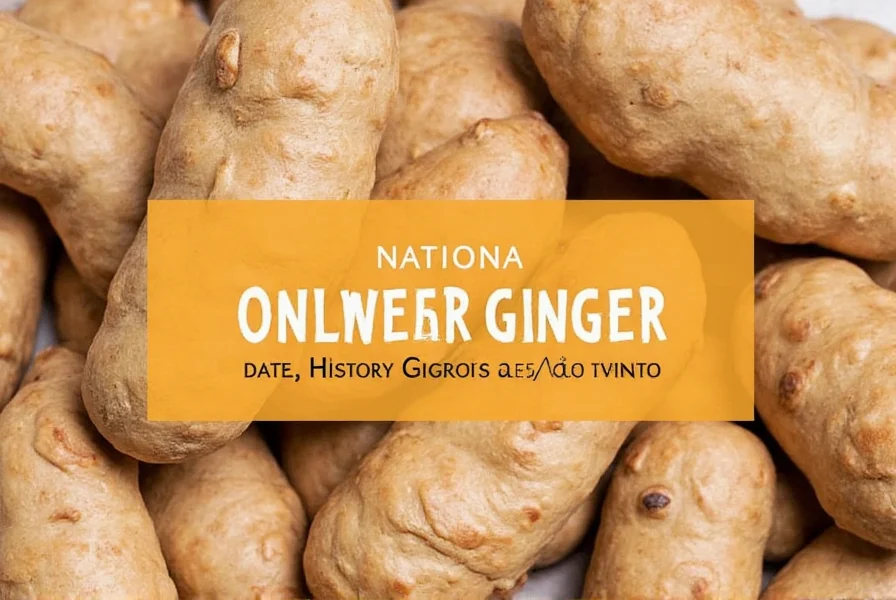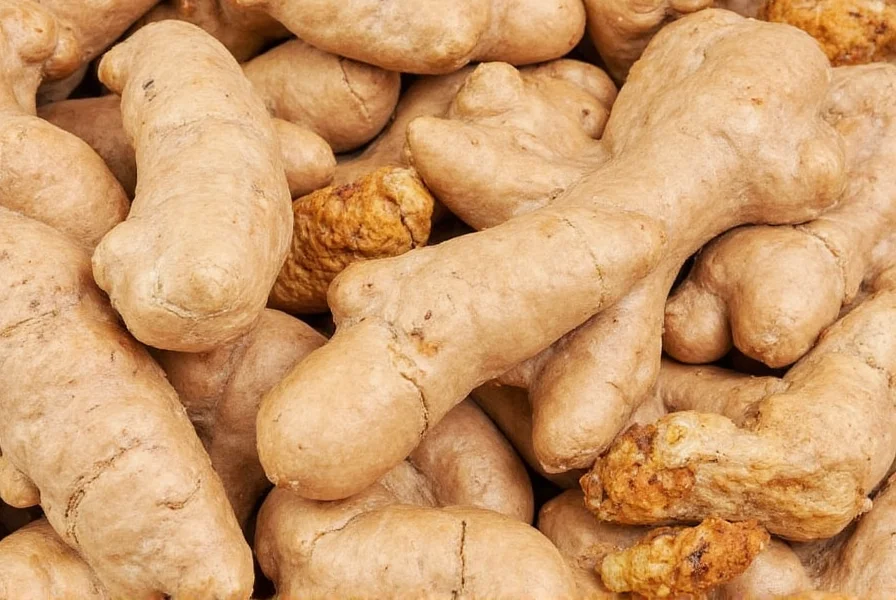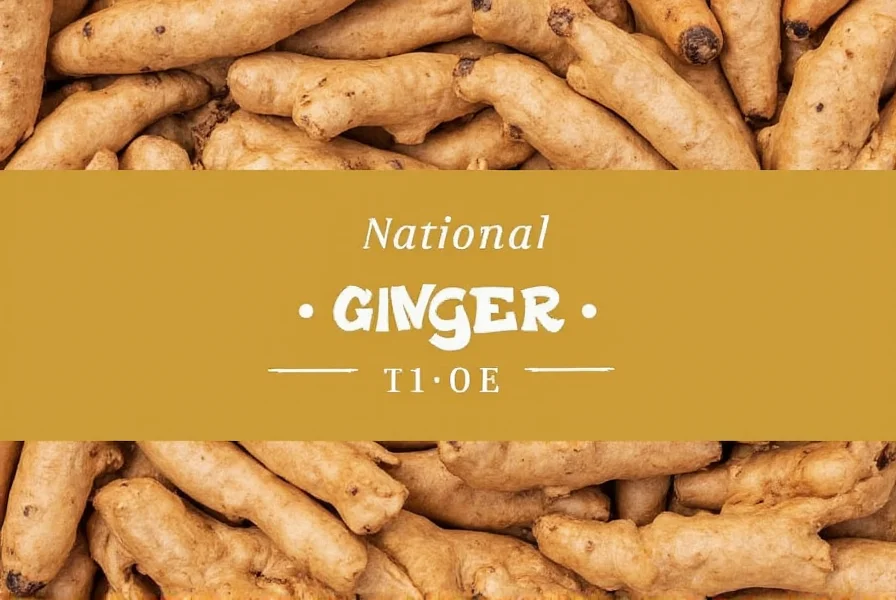National Ginger Day provides the perfect opportunity to appreciate this remarkable rhizome that has been treasured for both culinary and medicinal purposes since ancient times. Whether you're a cooking enthusiast, health-conscious individual, or simply curious about food traditions, understanding ginger's significance enhances your appreciation of this flavorful root.
The Origins of National Ginger Day
While the exact origins of National Ginger Day remain somewhat unclear, food historians believe it emerged during the late 20th century as part of a broader movement to celebrate specific ingredients and their cultural significance. Unlike many food holidays created by marketing departments, National Ginger Day appears to have organically developed among culinary communities who recognized ginger's extraordinary versatility.
Ginger's journey to becoming a celebrated ingredient began long before modern food holidays. Originating in Southeast Asia, this spicy root spread along ancient trade routes to become a staple in Indian, Chinese, Arabic, and eventually European cuisines and traditional medicine systems. By the time ginger reached European markets during the Middle Ages, it had become so valuable that a pound of ginger was worth the same as a sheep.
Ginger's Global Cultural Significance
Ginger holds special meaning across numerous cultures worldwide, each incorporating it into their traditions in unique ways:
| Culture | Traditional Ginger Uses | Significance |
|---|---|---|
| Asian Cultures | Pickled ginger, teas, stir-fries | Symbolizes warmth and vitality; used in traditional medicine for centuries |
| Caribbean | Ginger beer, jerk seasoning, stews | Integral to regional cuisine and folk medicine practices |
| African | Spice blends, medicinal teas | Used for digestive health and as a warming remedy |
| European | Gingerbread, spiced wines, preserves | Historically valued as a luxury spice; featured in medieval feasts |
Science-Backed Health Benefits of Ginger
Modern research continues to validate what traditional medicine systems have known for centuries—ginger offers numerous health benefits supported by scientific evidence. When exploring health benefits of ginger, several key findings stand out:
Ginger contains bioactive compounds like gingerol, which possess powerful anti-inflammatory and antioxidant properties. Studies published in the Journal of Medicinal Food indicate that regular ginger consumption may help reduce muscle pain and soreness by up to 25%. Additionally, research in the journal Obstetrics & Gynecology shows ginger's effectiveness in reducing nausea during pregnancy, with minimal side effects compared to pharmaceutical alternatives.
Nutritionally, ginger packs a punch despite its small size. Just one tablespoon of fresh ginger contains:
- Approximately 4 calories
- 0.1g protein
- 0.9g carbohydrates
- Trace amounts of vitamin C, magnesium, and potassium
- Significant amounts of gingerol and other beneficial compounds

Celebrating National Ginger Day: Meaningful Ways to Participate
When considering how to celebrate National Ginger Day, focus on authentic experiences that honor ginger's rich heritage rather than commercial promotions. Here are several meaningful approaches:
Educational Exploration: Dedicate time to learning about ginger's botanical characteristics. Did you know that what we commonly call "ginger root" is technically a rhizome—a horizontal underground stem? Visit a local botanical garden or watch educational videos from reputable horticultural institutions to deepen your understanding.
Culinary Adventures: Prepare a dish featuring ginger as the star ingredient. Traditional recipes like Indian adrak chai (ginger tea), Japanese sunomono (vinegared cucumber salad with ginger), or Jamaican ginger beer offer authentic experiences without commercial bias. Document your cooking process and share your results with friends.
Community Sharing: Create small batches of ginger-infused items like crystallized ginger or ginger simple syrup to share with neighbors. Include information about ginger's history with your gifts to educate recipients about traditional uses of ginger across different cultures.
Fascinating Ginger Facts Worth Knowing
As you explore ginger facts and statistics for National Ginger Day, consider these intriguing details:
- Globally, India leads in ginger production, accounting for approximately 43% of the world's supply
- Ginger continues growing after harvesting—this is why proper storage is essential
- The word "ginger" derives from the Sanskrit word "srngaveram," meaning "horn root"
- Ginger belongs to the same plant family as turmeric and cardamom
- Historical records show ginger was used in ancient Egypt as early as 1550 BCE
Understanding these facts enhances your appreciation of why when is National Ginger Day celebrated matters—it's not just about the date, but recognizing ginger's enduring significance throughout human history.

Preserving Ginger's Legacy for Future Generations
As we observe National Ginger Day each June 15th, we participate in preserving a culinary and medicinal tradition that spans millennia. The significance of ginger in different cultures demonstrates how a single plant can weave through human history, connecting diverse societies through shared appreciation.
By celebrating National Ginger Day with authentic activities that honor ginger's heritage rather than commercial interests, we help ensure this valuable tradition continues. Whether you're exploring ginger's role in traditional Chinese medicine, experimenting with authentic Caribbean recipes, or simply enjoying a cup of ginger tea, you're participating in a global tradition that deserves recognition and preservation.
When is National Ginger Day celebrated each year?
National Ginger Day is celebrated annually on June 15th in the United States. This date was established to honor ginger's culinary and medicinal significance, though the exact origins of this specific date remain somewhat unclear in historical records.
What are the scientifically proven health benefits of ginger?
Research shows ginger contains gingerol, which has anti-inflammatory and antioxidant properties. Studies indicate it can reduce muscle pain by up to 25%, alleviate nausea (particularly during pregnancy), improve digestion, and may help lower blood sugar levels in people with type 2 diabetes when consumed regularly.
How did ginger spread across different cultures historically?
Ginger originated in Southeast Asia and spread along ancient trade routes. It reached India and China by 2000 BCE, the Middle East by the 1st century CE, and Europe during the Roman Empire. By the Middle Ages, it was so valuable that a pound of ginger equaled the price of a sheep. Arab traders controlled much of the ginger trade until Portuguese explorers established direct sea routes to Asia.
What's the difference between fresh ginger, dried ginger, and preserved ginger?
Fresh ginger has the strongest, most vibrant flavor with higher gingerol content. Dried ginger (often ground into powder) has a more concentrated, slightly different flavor profile with lower gingerol but higher shogaol content. Preserved ginger (crystallized or in syrup) retains some benefits but contains added sugar. Each form serves different culinary and medicinal purposes based on their unique chemical compositions.
How should I store ginger to maximize its shelf life?
For short-term storage (1-2 weeks), keep unpeeled ginger in the refrigerator in an airtight container. For longer storage (up to 3 months), freeze whole ginger roots. You can grate frozen ginger directly into recipes without thawing. Avoid storing ginger at room temperature for extended periods as it will dry out and become fibrous. Never store ginger in water as this promotes mold growth.
Frequently Asked Questions
When is National Ginger Day celebrated each year?
National Ginger Day is celebrated annually on June 15th in the United States. This date was established to honor ginger's culinary and medicinal significance, though the exact origins of this specific date remain somewhat unclear in historical records.
What are the scientifically proven health benefits of ginger?
Research shows ginger contains gingerol, which has anti-inflammatory and antioxidant properties. Studies indicate it can reduce muscle pain by up to 25%, alleviate nausea (particularly during pregnancy), improve digestion, and may help lower blood sugar levels in people with type 2 diabetes when consumed regularly.
How did ginger spread across different cultures historically?
Ginger originated in Southeast Asia and spread along ancient trade routes. It reached India and China by 2000 BCE, the Middle East by the 1st century CE, and Europe during the Roman Empire. By the Middle Ages, it was so valuable that a pound of ginger equaled the price of a sheep. Arab traders controlled much of the ginger trade until Portuguese explorers established direct sea routes to Asia.
What's the difference between fresh ginger, dried ginger, and preserved ginger?
Fresh ginger has the strongest, most vibrant flavor with higher gingerol content. Dried ginger (often ground into powder) has a more concentrated, slightly different flavor profile with lower gingerol but higher shogaol content. Preserved ginger (crystallized or in syrup) retains some benefits but contains added sugar. Each form serves different culinary and medicinal purposes based on their unique chemical compositions.
How should I store ginger to maximize its shelf life?
For short-term storage (1-2 weeks), keep unpeeled ginger in the refrigerator in an airtight container. For longer storage (up to 3 months), freeze whole ginger roots. You can grate frozen ginger directly into recipes without thawing. Avoid storing ginger at room temperature for extended periods as it will dry out and become fibrous. Never store ginger in water as this promotes mold growth.











 浙公网安备
33010002000092号
浙公网安备
33010002000092号 浙B2-20120091-4
浙B2-20120091-4